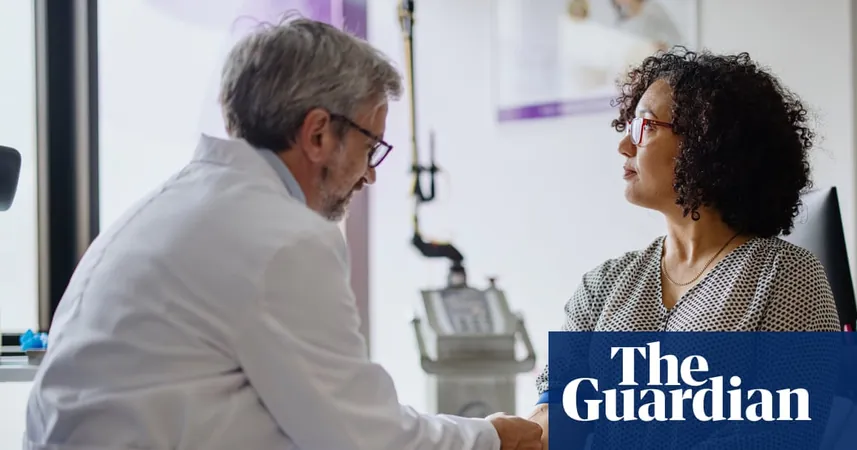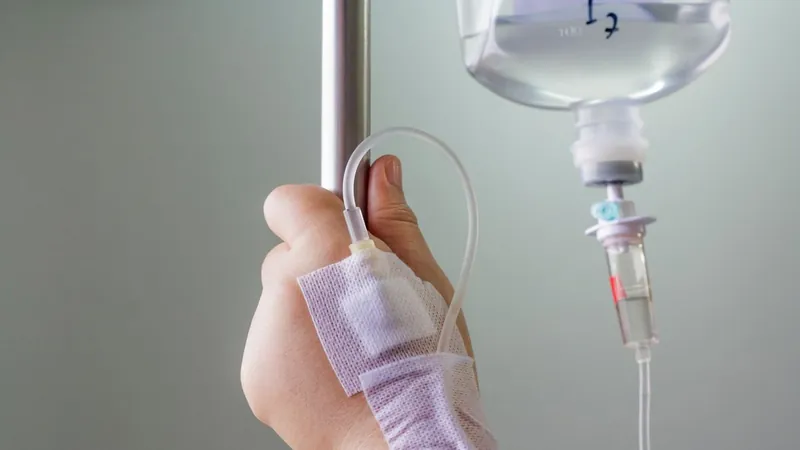
Are Overpriced Menopause Tests Undermining Women’s Health? Experts Warn!
2025-09-07
Author: Charlotte
Senior doctors are sounding the alarm over expensive hormone tests for menopause sold in clinics and retail stores, labeling them as medically ineffective and potentially harmful to women’s health.
These so-called testing kits promise personalized insights through hormone measurement, but experts assert they only confuse women and drain their wallets. Dr. Stephanie Sterry, co-author of a BMJ editorial titled 'Menopause Misinformation is Harming Care,' warns that these tests lack scientific backing and provide no valuable insights into treatment.
The Dangerous Appeal of DIY Hormone Testing
Available in UK stores like Asda and Superdrug, menopause kits include rapid urine tests and finger-prick blood tests, with prices ranging from £8 to a whopping £189. Yet medical guidelines maintain that menopause can be accurately diagnosed through symptoms alone, rendering these tests unnecessary.
"These tests are marketed as essential for customizing hormone therapy," Dr. Sterry explains. "In reality, they offer limited value. Many women are misled into believing these expensive tests will directly enhance their treatment options."
The Impact of Misinformation and Unregulated Treatments
Dr. Paula Briggs from the British Menopause Society echoes these sentiments, stating that the rise of these tests has led to misleading expectations about hormone replacement therapy (HRT). She is deeply concerned about the surge in unregulated treatments, such as pricey bioidentical hormones, that promise quick fixes.
In a health landscape increasingly dominated by these commercial tests, Dr. Briggs has withdrawn from private practice to focus on NHS-led care. Dr. Susanna Unsworth, a menopause specialist, adds that many women come to appointments equipped with unfounded test results they believe should dictate their treatment.
A Fragmented Trust Between Patients and Doctors
These misguided expectations often lead to confusion, where women bring in results that cannot be interpreted meaningfully by their physicians. Dr. Unsworth highlights the dilemma: when she has to tell patients their self-ordered tests offer no added value, it undermines their trust in her expertise.
A Defense of Hormone Testing? Not Quite!
Dr. Martin Thornton from Bluecrest, a private clinic, defends the practice, arguing that these tests empower women by correlating data with symptoms. However, Dr. Sterry challenges this assertion, stating there is no proof that test results correlate with symptom severity or assist in diagnosis.
The critical consensus? Testing should only occur if results will directly inform patient care, and current hormone testing protocols are failing this standard. Symptoms should guide treatment, not flawed data.
Final Thoughts from Retailers
Asda and Superdrug have been contacted for comments regarding the controversy surrounding their testing kits. A spokesperson from Superdrug noted that they introduced their FSH test based on customer demand for measuring hormone levels, coupled with tailored medical advice.
In a world of self-proclaimed experts and misleading information, it’s vital for women to remain informed about their health care options and to seek guidance from trusted medical professionals.









 Brasil (PT)
Brasil (PT)
 Canada (EN)
Canada (EN)
 Chile (ES)
Chile (ES)
 Česko (CS)
Česko (CS)
 대한민국 (KO)
대한민국 (KO)
 España (ES)
España (ES)
 France (FR)
France (FR)
 Hong Kong (EN)
Hong Kong (EN)
 Italia (IT)
Italia (IT)
 日本 (JA)
日本 (JA)
 Magyarország (HU)
Magyarország (HU)
 Norge (NO)
Norge (NO)
 Polska (PL)
Polska (PL)
 Schweiz (DE)
Schweiz (DE)
 Singapore (EN)
Singapore (EN)
 Sverige (SV)
Sverige (SV)
 Suomi (FI)
Suomi (FI)
 Türkiye (TR)
Türkiye (TR)
 الإمارات العربية المتحدة (AR)
الإمارات العربية المتحدة (AR)